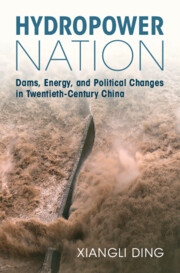
- Cited by 1
-
Cited byCrossref Citations
This Book has been cited by the following publications. This list is generated based on data provided by Crossref.
Ghosh, Arunabh 2025. The Significance of Small Things: Small Hydropower in the People’s Republic of China, 1949–1983. Comparative Studies in Society and History, Vol. 67, Issue. 1, p. 141.
- Publisher:
- Cambridge University Press
- Online publication date:
- October 2024
- Print publication year:
- 2024
- Online ISBN:
- 9781009426589


